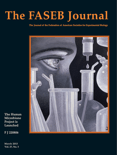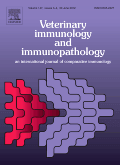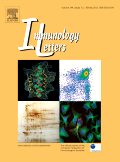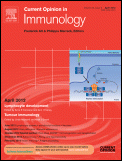
Immuno
Scope & Guideline
Shaping the Future of Immunology with Every Publication
Introduction
Aims and Scopes
- Immunological Mechanisms and Responses:
Research on the fundamental mechanisms of the immune system, including cellular and molecular interactions, signaling pathways, and the roles of various immune cells in health and disease. - Clinical Immunology and Therapeutics:
Studies that explore the clinical applications of immunology, including the development of immunotherapies, vaccine research, and treatment strategies for autoimmune diseases and cancer. - Inflammation and Disease Mechanisms:
Investigations into the role of inflammation in various diseases, including infectious diseases, metabolic disorders, and chronic inflammatory conditions. - Translational Research and Innovations:
Focus on bridging the gap between laboratory findings and clinical applications, including the development of novel therapeutic strategies and diagnostic tools. - Public Health and Epidemiology:
Research addressing the impact of immunological factors on public health, including studies on vaccine efficacy, disease outbreaks, and population-level immune responses.
Trending and Emerging
- COVID-19 Immunology and Vaccination:
Research related to the immune response to SARS-CoV-2 and the effectiveness of vaccines continues to dominate recent publications, highlighting the urgent need for understanding immunity against this virus. - Microbiome and Immunity:
An increasing focus on the interplay between the gut microbiome and immune responses, exploring how microbiota influence health and disease processes. - Immunotherapy and Cancer Treatment:
A surge in studies exploring the mechanisms and efficacy of various immunotherapeutic approaches in cancer treatment, including CAR-T cell therapy and checkpoint inhibitors. - Nutritional Immunology:
Emerging research on the impact of diet and specific nutrients on immune function, especially in the context of infectious diseases and chronic inflammation. - Personalized Medicine in Immunology:
Growing emphasis on personalized approaches to immunotherapy and treatment strategies, tailoring interventions based on individual immune profiles and responses.
Declining or Waning
- Traditional Vaccine Development:
Research specifically focused on traditional vaccine development appears to be waning, as the field shifts towards more innovative approaches such as mRNA vaccines and personalized immunotherapies. - Basic Animal Models in Immunology:
There is a noticeable decrease in studies relying solely on basic animal models. Research is increasingly focusing on human-relevant models and translational studies that provide direct insights into human immunology. - Overarching Theoretical Frameworks:
Papers that primarily discuss theoretical frameworks without substantial empirical data are becoming less frequent as the journal emphasizes more data-driven and experimental research.
Similar Journals

FASEB JOURNAL
Connecting Researchers to Transformative DiscoveriesFASEB JOURNAL, published by Wiley, stands as a leading interdisciplinary platform in the realm of biological sciences, prominently featured in the United States. With an impressive 2023 impact factor placing it in the Q1 category across various fields including Biochemistry, Biotechnology, Genetics, Molecular Biology, and Medicine (miscellaneous), the journal is recognized for its substantial contribution to advancing knowledge and innovation. It serves as a vital resource for researchers, professionals, and students alike, providing high-quality, peer-reviewed articles that explore the molecular and cellular mechanisms underlying health and disease. The FASEB JOURNAL not only emphasizes accessible scientific communication but also fosters collaboration within these dynamic fields, making it an essential publication for anyone engaged in cutting-edge life sciences research. To explore more about the journal's offerings and access its vast repository of scholarly articles, visit their official page.

VETERINARY IMMUNOLOGY AND IMMUNOPATHOLOGY
Leading the way in veterinary immunology and therapeutic advancements.Veterinary Immunology and Immunopathology is a premier journal published by Elsevier, dedicated to advancing the field of veterinary science through rigorous investigations into the immunological mechanisms that underpin disease resistance, pathogenesis, and therapeutic interventions in animals. With an established history since 1979, this journal has consistently provided a platform for high-quality research, bridging the gap between immunology and veterinary medicine. The current impact factor reflects its significance within the field, particularly noted for its Q3 ranking in Immunology and Q2 in miscellaneous Veterinary categories as of 2023. The journal caters to a diverse audience, from seasoned researchers to students, by publishing original research, reviews, and case studies that explore pivotal topics such as vaccine development, immune response in various species, and the role of genetics in immunological disorders. Notably, it is indexed in Scopus, where it ranks in the top percentile of veterinary science disciplines, enhancing its visibility and impact within the scientific community. For those seeking to stay at the forefront of veterinary immunology, this journal is an invaluable resource.

IMMUNOLOGY LETTERS
Pioneering Research in Immunity and AllergyIMMUOLOGY LETTERS, published by Elsevier, is a distinguished journal in the field of immunology, focusing on the latest advancements and findings that significantly influence immunological research and clinical applications. Established in 1979, the journal has evolved to cater to a global readership, featuring high-quality peer-reviewed articles across a diverse spectrum of topics related to immunity and allergic responses. With an impressive Q2 category ranking in both Immunology and Allergy as of 2023, it holds a strong position within the scientific community, evidenced by its commendable Scopus rankings (Rank #71/233 in Medicine - Immunology and Allergy and Rank #85/236 in Immunology and Microbiology - Immunology). While primarily subscription-based, the journal aims to foster knowledge dissemination that encourages collaboration among researchers and practitioners alike, making significant contributions to the understanding of immune mechanisms. The journal is integral for educators, students, and professionals aiming to stay abreast of current trends and breakthroughs in the immune system's intricate functions.

Journal of Translational Medicine
Bridging Discovery and Healing.Journal of Translational Medicine, published by BMC in the United Kingdom, stands at the forefront of biomedical research, bridging the gap between laboratory discoveries and clinical applications. Established in 2003 as an Open Access journal, it has garnered significant recognition, achieving a Q1 quartile ranking in both Biochemistry, Genetics and Molecular Biology and Medicine categories as of 2023. With an impressive Scopus rank of 38 out of 636 in General Medicine and 33 out of 221 in General Biochemistry, Genetics and Molecular Biology, the journal is committed to disseminating high-quality, peer-reviewed research that impacts healthcare and informs clinical practices. By facilitating free access to groundbreaking studies, the Journal of Translational Medicine aims to enhance collaboration among researchers, professionals, and students in the scientific community, fostering advancements in translational research well into the future.

Immunopathologia Persa
Fostering Global Collaboration in Health ScienceImmunopathologia Persa, published by NIKAN RESEARCH INST, is a premier open-access journal specializing in the fields of immunology, hematology, and endocrinology. Since its inception in 2015, the journal has aimed to disseminate high-quality research and innovative insights critical to understanding immune responses, disease mechanisms, and therapeutic strategies. Based in Iran, the journal contributes significantly to the academic landscape, with quarterly categorizations placing it in the fourth quartile across multiple vital sectors including Endocrinology, Diabetes and Metabolism, and Immunology. It features a diverse range of articles and studies that cater to both emerging and established researchers, aiding in the advancement of knowledge and clinical practice in immunopathology. With its commitment to open access, Immunopathologia Persa ensures that cutting-edge research is readily available to all, fostering a collaborative research environment and promoting the dissemination of findings globally. Researchers, professionals, and students are encouraged to explore the contents of this journal to stay abreast of the latest developments in these critical areas of health science.

Journal of Inflammation Research
Pioneering Insights into Inflammation and Its ImpactJournal of Inflammation Research, published by Dove Medical Press Ltd, is a premier open-access journal dedicated to advancing the field of immunology and allergy, with a particular focus on the biological mechanisms underlying inflammation. Since its inception in 2008, this journal has provided a vital platform for researchers to share their findings and foster collaboration within the global scientific community. With an impressive 2023 impact factor placing it in the Q2 category for both Immunology and Immunology and Allergy, the journal has consistently maintained its relevance and high academic standards, ranking #100 in Medicine (Immunology and Allergy) and #118 in Immunology (Immunology and Microbiology) according to Scopus metrics. The E-ISSN 1178-7031 allows for easy access to a plethora of pioneering research articles, reviews, and clinical studies that address contemporary issues in inflammation and immunity. As a leading resource for researchers, professionals, and students alike, Journal of Inflammation Research is committed to facilitating the dissemination of groundbreaking discoveries that contribute to improved therapeutic strategies and health outcomes.

JOURNAL OF INFECTIOUS DISEASES
Exploring the Dynamics of Infectious DiseasesThe JOURNAL OF INFECTIOUS DISEASES, published by OXFORD UNIV PRESS INC, is a leading peer-reviewed journal dedicated to advancing the understanding of infectious diseases through high-quality research. With an impressive impact factor reflecting its prominence in the field—ranking in the Q1 category for both Immunology and Allergy and Infectious Diseases—this journal serves as a pivotal platform for researchers, healthcare professionals, and students alike. Its extensive history, spanning over a century since its inception in 1904, highlights its established authority and commitment to the field. Based in the United Kingdom, the journal covers essential topics from clinical management to epidemiological trends, providing vital insights that inform practice and policy. Although the journal is not open access, it remains accessible to a wide audience, ensuring that critical research continues to drive innovation and best practices in infectious disease management.

INFLAMMATION RESEARCH
Pioneering insights into inflammatory processes.INFLAMMATION RESEARCH, published by SPRINGER BASEL AG, serves as a pivotal journal in the fields of Immunology and Pharmacology, with notable rankings of Q2 in Immunology and Q1 in Pharmacology as of 2023. With an ISSN of 1023-3830 and an E-ISSN of 1420-908X, this esteemed journal, located in Basel, Switzerland, has been at the forefront of advancing our understanding of inflammatory processes since its inception in 1995. Covering research trends and breakthroughs until 2024, it significantly contributes to both the theoretical frameworks and practical applications within its discipline, boasting a strong Scopus ranking of #40/313 in Pharmacology and #56/236 in Immunology, placing it in the top percentiles for its field. Although it does not offer Open Access options, the journal remains an invaluable resource for researchers, professionals, and students committed to unraveling the complexities of inflammation and its implications in health and disease.

HUMAN IMMUNOLOGY
Connecting Researchers in the Realm of ImmunologyHUMAN IMMUNOLOGY, published by Elsevier Science Inc, serves as a critical platform for disseminating research in the fields of immunology and allergy, as well as various aspects of miscellaneous medicine since its inception in 1980. With an ISSN of 0198-8859 and E-ISSN 1879-1166, this journal is pivotal for researchers and practitioners looking to advance their understanding of human immune responses and related conditions. The journal currently holds a respectable position within its field, as highlighted by its 2023 Scopus ranks—#114/233 in Immunology and Allergy and #132/236 in Immunology and Microbiology. Moreover, it maintains a Q2 quartile ranking in both Immunology and Allergy and miscellaneous Medicine, underscoring its influence and reach within the scientific community. Although it does not currently offer Open Access options, HUMAN IMMUNOLOGY remains dedicated to providing valuable insights and fostering academic discourse within its discipline, characterized by a rigorous peer-review process and a focus on innovative research trajectories.

CURRENT OPINION IN IMMUNOLOGY
Leading the Charge in Immunology InsightsCURRENT OPINION IN IMMUNOLOGY is a prestigious journal dedicated to the dynamic field of immunology, published by CURRENT BIOLOGY LTD in the United Kingdom. With an ISSN of 0952-7915 and an E-ISSN of 1879-0372, this journal has been a cornerstone of scholarly communication since its inception in 1988 and continues to disseminate cutting-edge research and reviews aimed at advancing our understanding of immune responses. Holding a remarkable Q1 ranking in both Immunology and Allergy categories for 2023, it ranks impressively within the top percentiles in its field, securing 27th233 in Immunology and Allergy and 31st out of 236 in Immunology and Microbiology. Emphasizing high-impact research, the journal provides researchers, professionals, and students with valuable insights into emerging trends and critical developments. As a vital resource in immunological research, it serves as a platform for disseminating innovative findings, fostering collaboration, and enhancing scholarly exchange in a rapidly evolving scientific landscape.